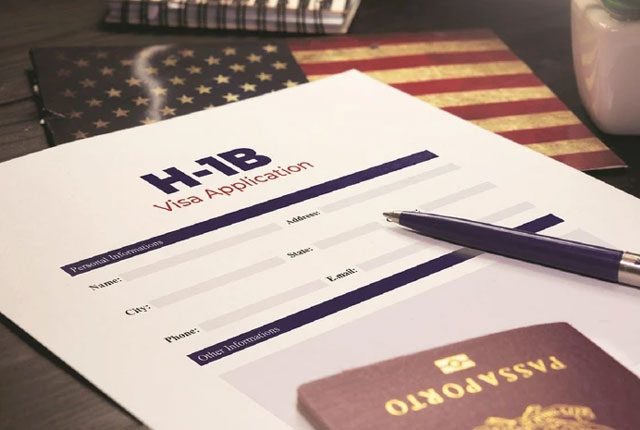Daijiworld Media Network - Washington
Washington, Sep 20: In a move set to jolt the global technology industry, the Trump administration announced plans to charge companies $100,000 per year for each H-1B worker visa, dramatically raising costs for firms that rely on highly skilled foreign talent from countries like India and China.
Since taking office in January, President Donald Trump has pursued a sweeping immigration crackdown, but Friday’s step marks his most aggressive bid yet to reshape the temporary employment visa programme. “Train Americans. Stop bringing in people to take our jobs,” US Commerce Secretary Howard Lutnick said, underscoring the administration’s push to prioritize domestic workers.

The proposed fee—covering each year of a three-year visa—could saddle tech giants and start-ups with millions in added costs and potentially drive some high-value work overseas. “If the US ceases to attract the best talent, it drastically reduces its ability to innovate and grow the economy,” warned Menlo Ventures partner Deedy Das. eMarketer analyst Jeremy Goldman cautioned that Washington might gain short-term revenue but risk “taxing away its innovation edge.”
Supporters of H-1B visas, including Tesla CEO and former Trump ally Elon Musk, argue the programme fills critical skill gaps and keeps American firms competitive. Critics contend it suppresses wages and sidelines US workers.
India remains the largest beneficiary of H-1B approvals—71 per cent last year—while China accounted for about 12 per cent. Tech majors Amazon, Microsoft and Meta each received thousands of approvals in the first half of 2025. Shares of Cognizant, Infosys and Wipro fell 2–5 per cent following the announcement.
The administration also unveiled a “gold card” plan offering US permanent residency to those willing to pay $1 million. Immigration advocates questioned the legality of the steep new H-1B fees, noting Congress authorizes only cost-recovery charges. The H-1B programme currently grants 65,000 visas annually, plus 20,000 for advanced-degree holders, typically at far lower costs.
With implementation details still unclear, the proposal has triggered alarm across Silicon Valley and in India, threatening to reshape the global talent pipeline that fuels America’s tech economy.